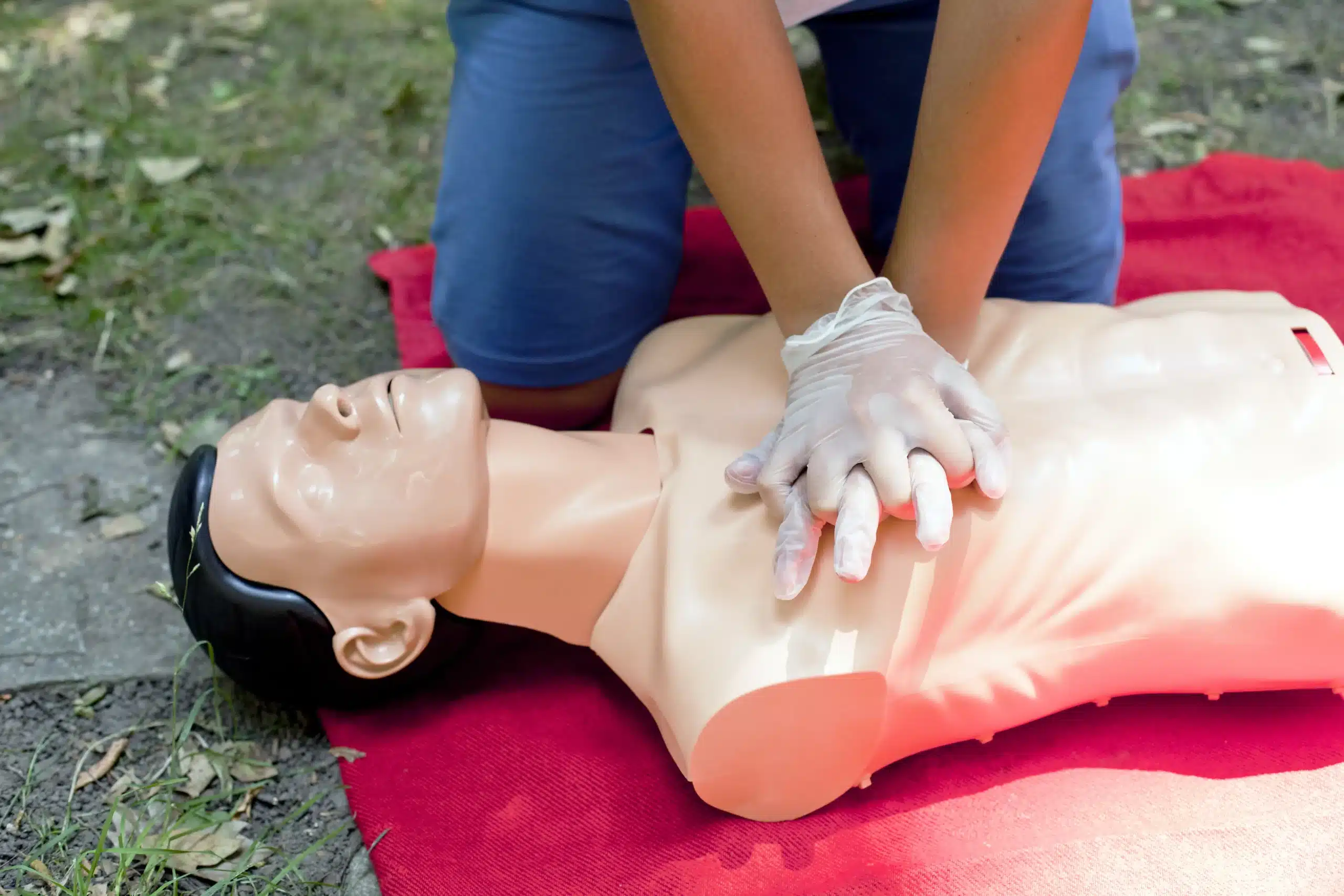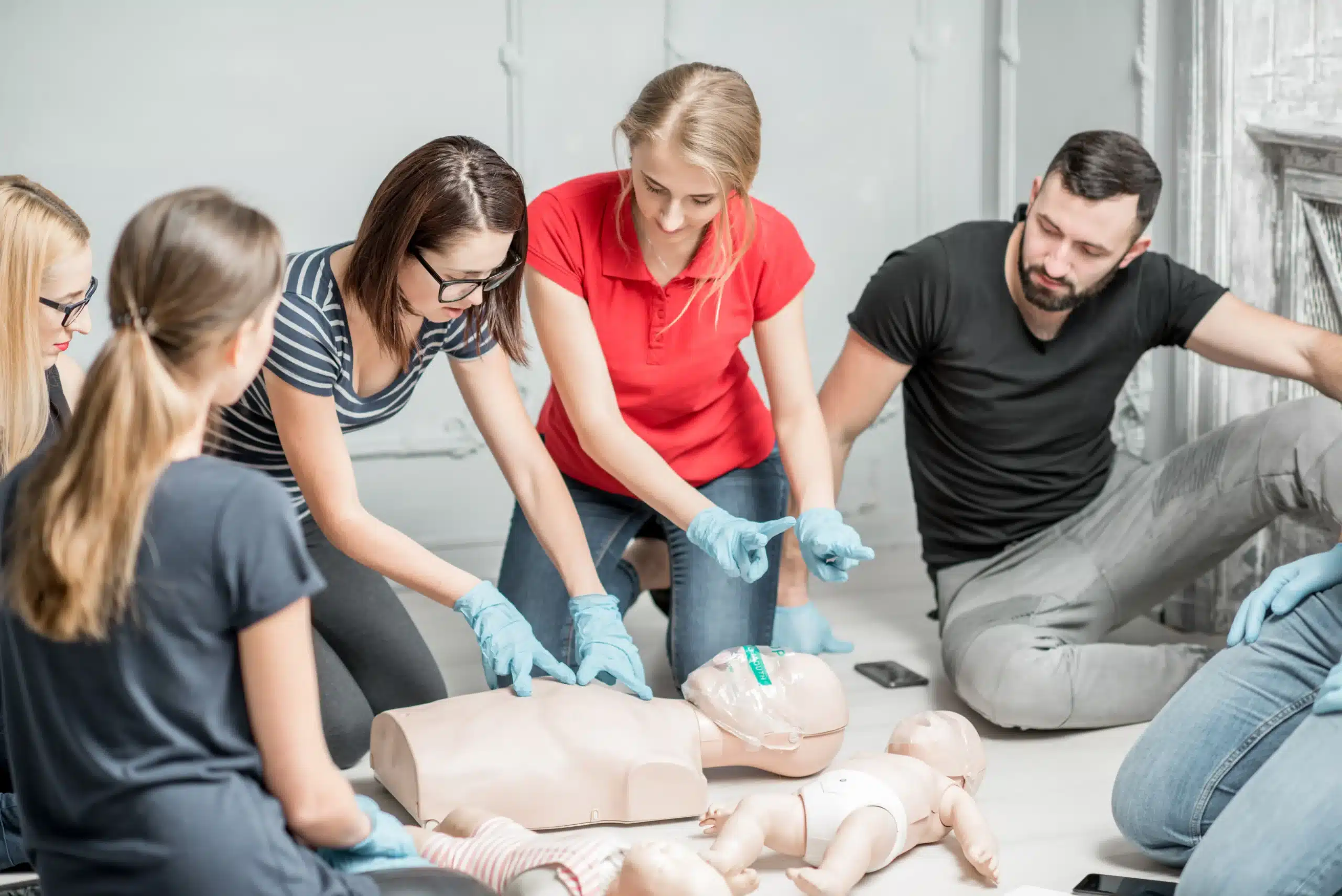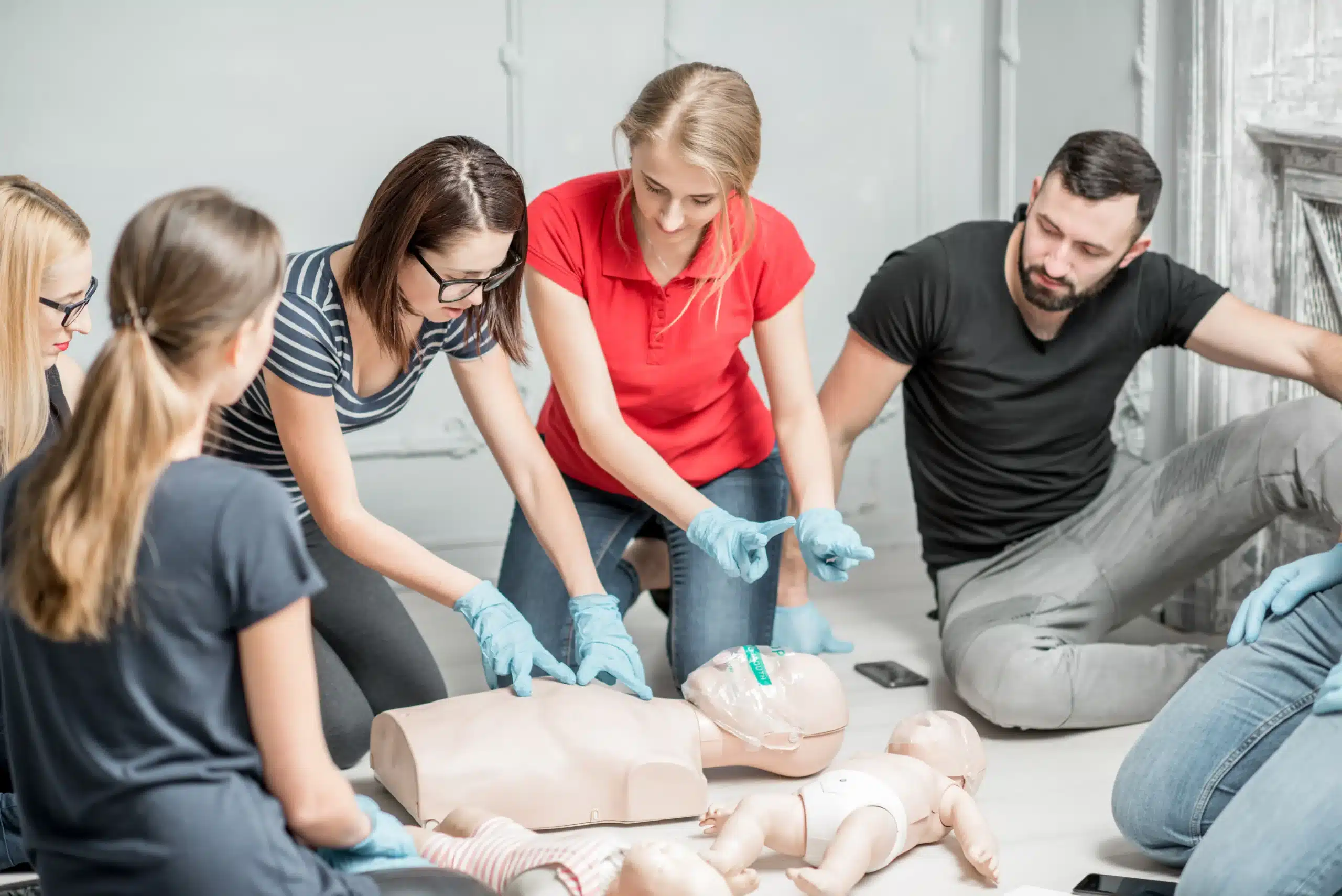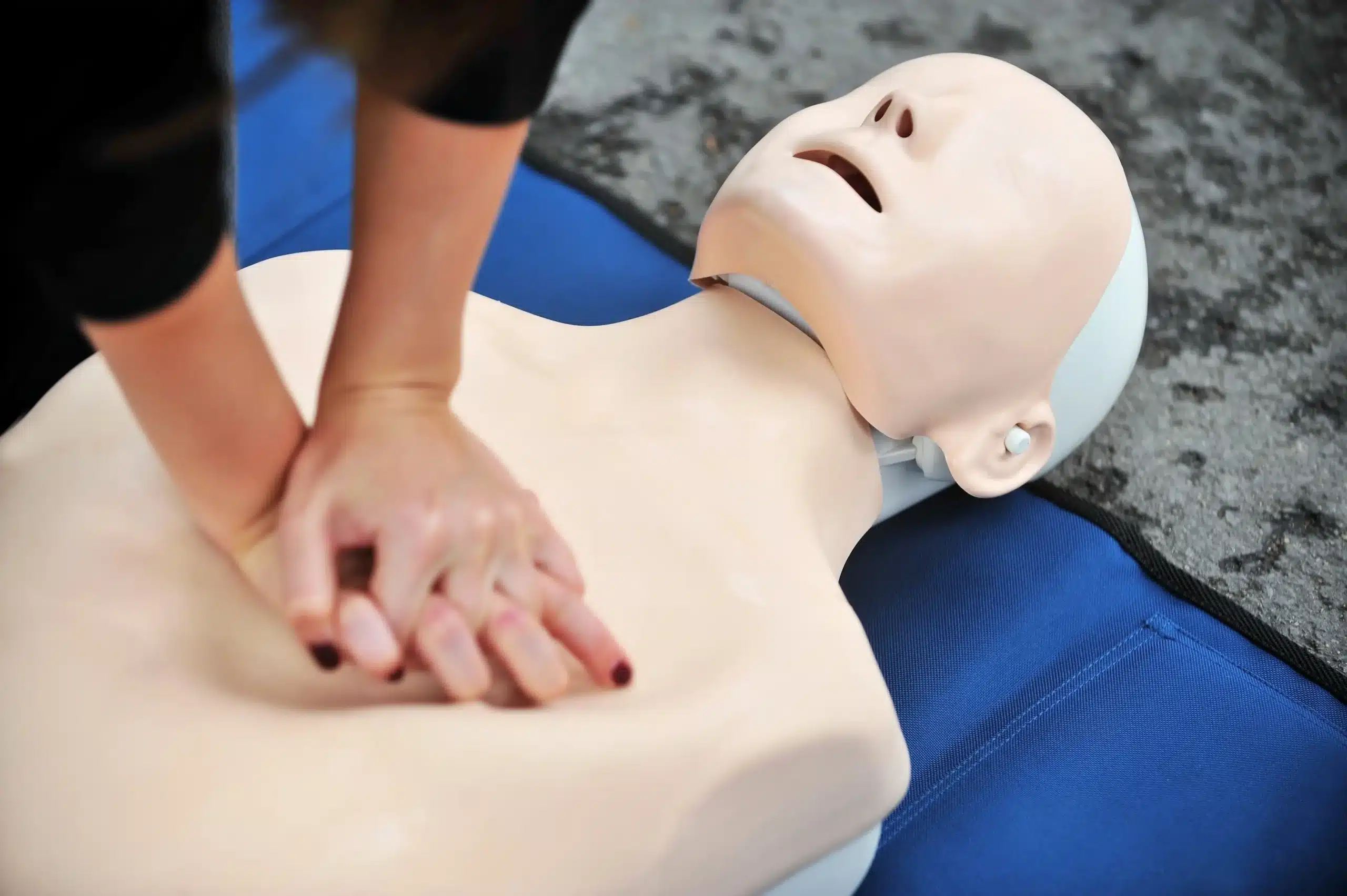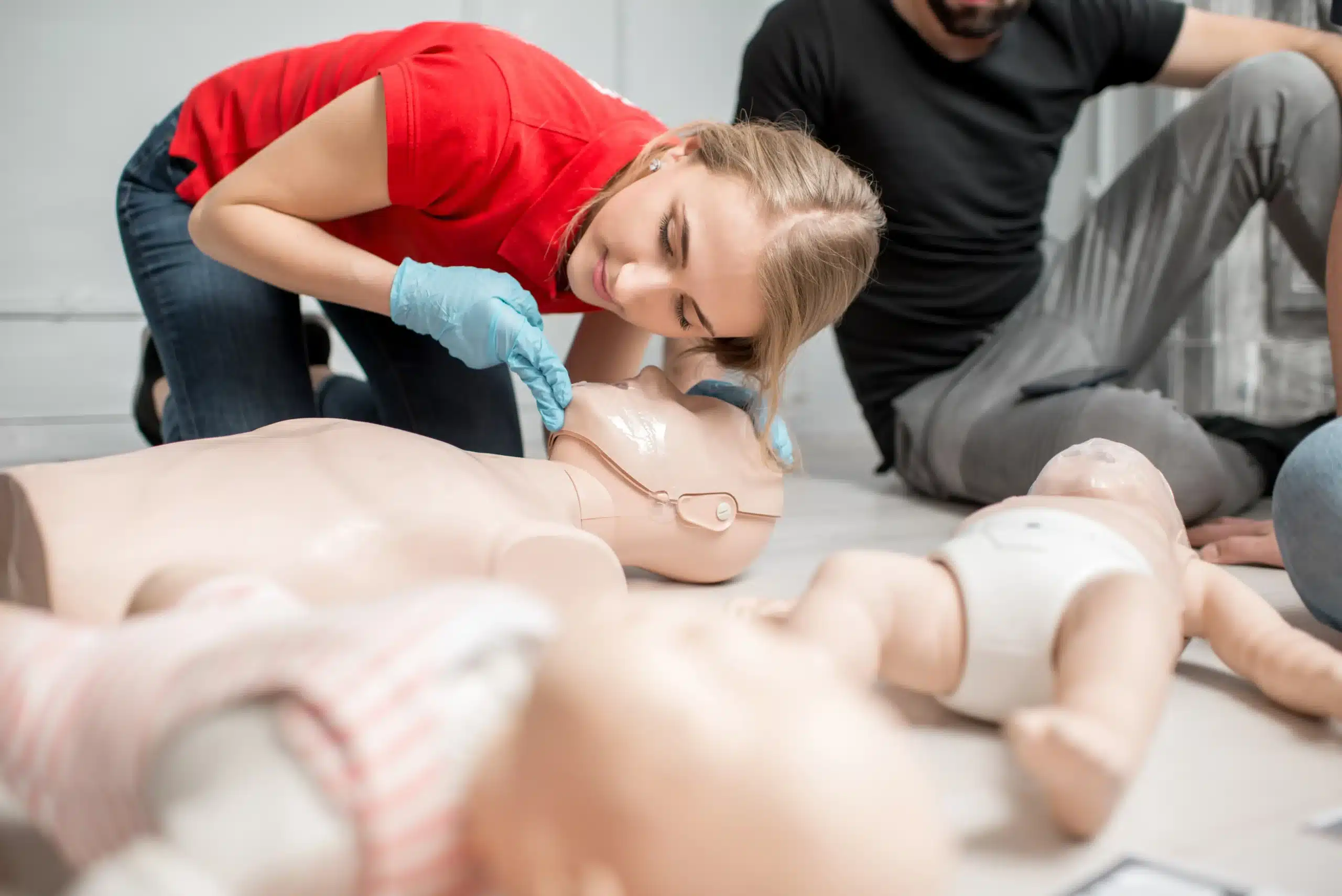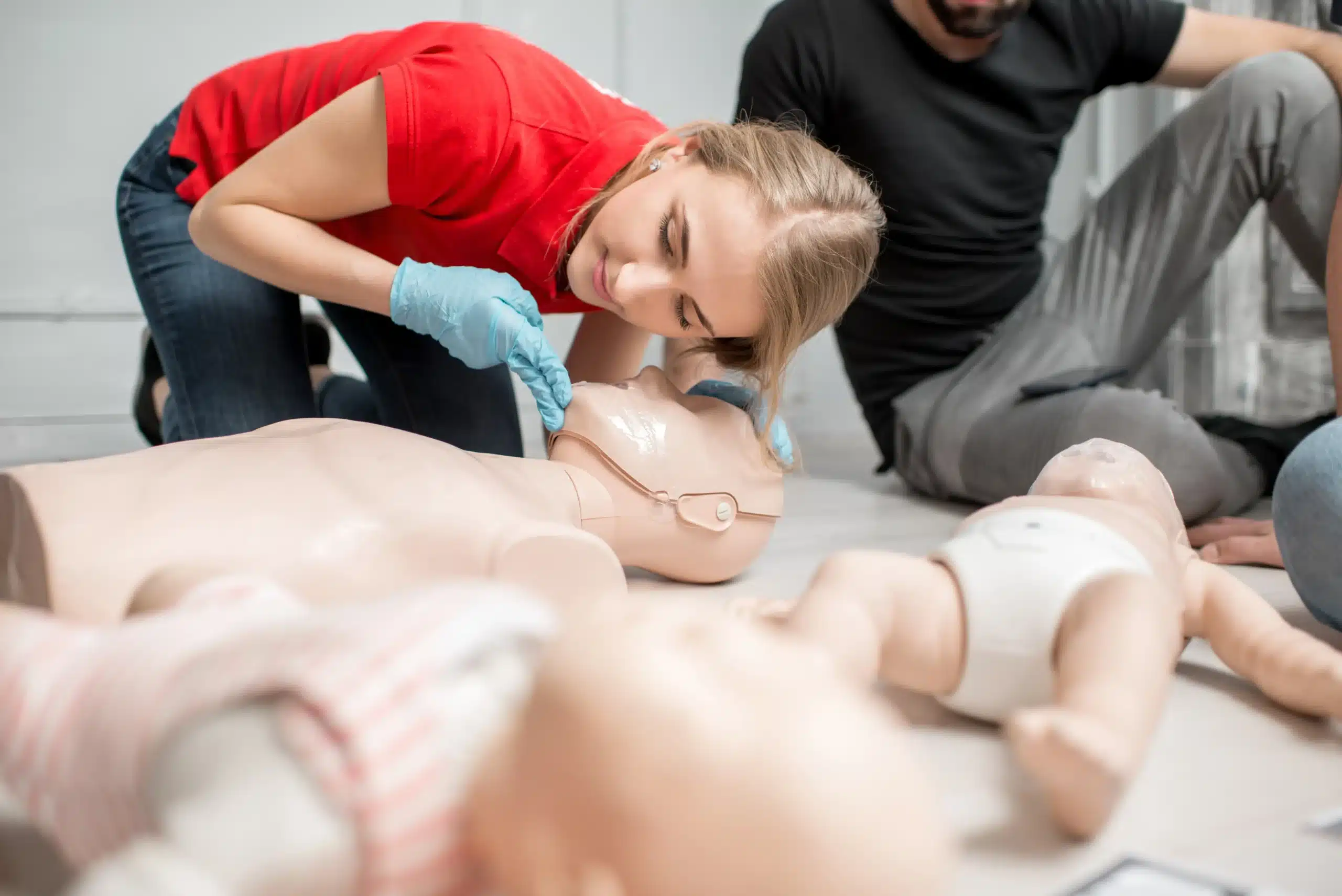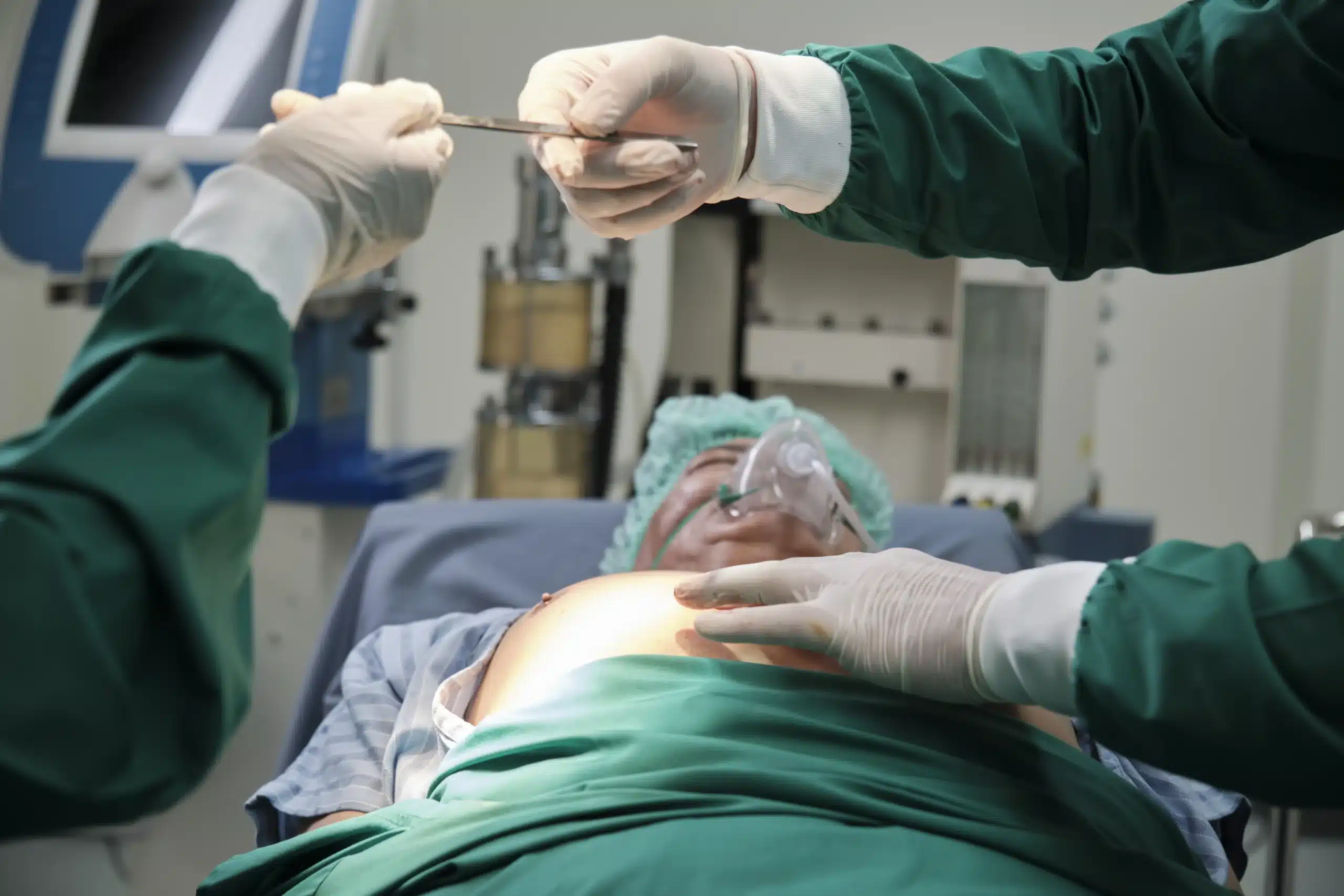Learning CPR is like having a superpower—the power to save a life. It’s a skill that goes beyond textbooks and mannequins; it’s about being prepared and empowered to make a difference when every second counts. Whether you’re a parent, caregiver, healthcare professional, or simply someone who wants to be prepared, CPR certification is a valuable asset. This guide will walk you through the process of getting certified, from finding “CPR certification near me” to understanding the costs and renewal requirements. We’ll explore the different types of CPR classes, the importance of hands-on training, and how certification can even open doors to new career opportunities.
Key Takeaways
- CPR certification provides essential life skills: It equips you with the knowledge and confidence to respond effectively during emergencies, potentially saving a life. This training is valuable for personal growth, career advancement, and community safety.
- Choosing the right CPR class matters: Explore different learning formats (in-person, online, blended) and consider factors like accreditation, instructor experience, and course reviews to find the best fit.
- Stay current with your CPR training: Regular practice and staying informed about the latest guidelines are essential for maintaining your skills and confidence. Look for community CPR events and refresher courses to keep your knowledge sharp.
What is CPR Certification & Why Does it Matter?
CPR certification shows you’ve completed training in how to perform CPR correctly. This typically includes recognizing cardiac arrest, giving chest compressions, and using an AED. But why is getting certified so important? Here’s why CPR certification matters:
It equips you with life-saving skills. CPR can make all the difference in a crisis. The American Red Cross emphasizes how training provides trusted, science-backed skills to help you respond effectively when every second counts. Think of it as essential knowledge that empowers you to act quickly and decisively.
CPR certification increases your confidence. Knowing you have the skills to handle an emergency makes you more likely to step up when needed. ProTrainings points out that a CPR course gives you the ability to manage various emergencies, not just those requiring CPR. It’s about being prepared and feeling capable, no matter the situation.
CPR training creates safer communities. When more people are trained, more people can respond effectively in a crisis. EMC CPR & Safety highlights how CPR training strengthens community safety by preparing individuals to act quickly and confidently. It’s about contributing to a more resilient and prepared community.
CPR certification can open doors to new career opportunities. Many professions in healthcare, education, and public safety require or highly value CPR certification. Alameda CPR Classes notes how CPR skills make you a valuable asset in many professional settings. It’s a smart investment in your future, regardless of your current career path. If you’re in Santa Rosa, Rohnert Park, or Windsor, check out Safety Training Seminars’ CPR certification courses. We offer a range of options to fit your needs and schedule.
CPR Certification Classes Near You
Finding the right CPR class is easier than you think. With various learning formats and comprehensive curriculums, you can gain these life-saving skills in a way that fits your lifestyle. Safety Training Seminars offers a range of options to suit your needs and preferences.
In-Person, Online, & Blended Learning
CPR certification classes come in several formats. In-person training provides hands-on learning and direct interaction with instructors, allowing for immediate feedback and personalized guidance. For busy individuals or those who prefer self-paced learning, online courses offer a flexible alternative. Blended learning combines online coursework with in-person skills sessions, giving you the benefits of both formats.
Adult, Child, & Infant CPR
Most CPR certification courses, including those at Safety Training Seminars, cover essential techniques for adults, children, and infants. You’ll learn how to perform CPR, use an AED, and respond to choking emergencies. This comprehensive training will prepare you to handle a variety of situations. Whether you’re a parent, caregiver, or healthcare professional, understanding these techniques can be invaluable.
First Aid & AED Training
Many CPR certification programs also include First Aid and AED training. First Aid certification equips you with essential skills for treating burns, sprains, and other common injuries. AED training teaches you how to use this device during sudden cardiac arrest. Combined with CPR, these skills empower you to provide well-rounded emergency care. Contact us today to learn more about our comprehensive training options.
Choosing a CPR Certification Provider
Finding the right CPR certification provider is crucial for a valuable learning experience. It’s not just about getting a certificate; it’s about gaining the confidence and skills to potentially save a life. Here’s what to consider:
Accreditation & Instructor Qualifications
First, check a program’s accreditation. As online CPR certification programs become more common, verifying a course’s credibility is essential. Look for reputable organizations like the American Heart Association or the American Red Cross. Also, research the instructors’ qualifications. Experienced, passionate instructors can make all the difference in your learning. A provider like Safety Training Seminars emphasizes both accreditation and qualified instructors.
Course Reviews & Provider Reputation
Before committing to a course, see what other students say. Online reviews and testimonials offer valuable insights into a training provider’s reputation and instruction quality. Reading feedback from past participants helps you gauge the program’s effectiveness and whether it fits your learning style.
Hands-on Practice
While online CPR courses offer convenience and affordability, in-person training provides crucial hands-on practice. This practical experience lets you develop muscle memory and build confidence in performing CPR in real life. In-person training ensures you’re not just learning the theory but also mastering the physical skills required to administer CPR effectively. Consider a blended learning approach that combines online learning with in-person skills sessions.
CPR Certification Costs
CPR certification costs vary based on several factors, including the type of course, your location, and the training provider. Understanding these factors will help you budget appropriately.
Price Ranges for Different Classes
Basic CPR and First Aid certification classes typically start around $70–$90. More advanced courses, such as ACLS (Advanced Cardiovascular Life Support) or PALS (Pediatric Advanced Life Support), will be more expensive, potentially ranging from $150–$250 or more. Specialized courses like BLS (Basic Life Support) for healthcare providers also fall into this higher price range. Remember that these are estimates, and prices can differ depending on the training center and what’s included. It’s always a good idea to check with specific providers like Safety Training Seminars for their current pricing.
Discounts, Group Rates, & Corporate Training
If you’re training multiple people or need CPR certification for your workplace, explore discounts. Many providers, including Safety Training Seminars, offer group discounts for classes. This can significantly reduce the per-person cost, making it more affordable for businesses and organizations. Some providers also offer discounts for students, seniors, or other groups, so it’s worth asking about applicable price reductions. For larger companies, specialized corporate training packages may be available. These often include customized training and on-site instruction, streamlining the process and potentially offering further cost savings. Check with local providers or Safety Training Seminars to discuss options for corporate training and group discounts. Don’t hesitate to ask about a low price guarantee to ensure you’re getting the best possible value.
CPR Certification: Validity & Renewal
How Long is Certification Valid?
CPR certifications are typically valid for two years. This standard applies to most recognized certifications, including those from the American Heart Association (AHA) and the American Red Cross. Knowing your certification’s expiration date is crucial for ensuring you’re always prepared for emergencies. Keep your certification current to maintain your skills and meet any workplace requirements.
Recertification Requirements
When your CPR certification nears its expiration date, you’ll need to recertify. This usually involves taking a renewal course that covers the latest CPR guidelines and techniques. Check with your employer or certifying organization for specific recertification requirements. Some workplaces may require in-person training, especially for certifications involving OSHA compliance or healthcare settings. Online renewal courses offer a convenient option for those who meet the criteria. Before choosing a
Renewal Options & Refresher Courses
Several options exist for renewing your CPR certification. In-person classes at Safety Training Seminars provide hands-on training and direct interaction with instructors. Blended learning combines online coursework with in-person skills practice. Fully online renewal courses offer flexibility for those with busy schedules. If your workplace requires OSHA compliance, ensure your chosen renewal method meets those standards. Even if recertification isn’t immediately due, consider taking a refresher course to stay sharp and confident in your CPR skills. Regular practice and updated knowledge can make a significant difference in emergency situations. Safety Training Seminars offers a variety of renewal and refresher courses to help you maintain your CPR certification and skills at our Santa Rosa location.
Local CPR Certification Requirements
Knowing local CPR certification requirements is essential, whether you’re starting a new career or simply want to be prepared for emergencies. Understanding both state regulations and your employer’s expectations will ensure your certification meets the necessary standards.
State Rules & Industry Standards
CPR certification requirements can vary by state and even profession. For example, Wisconsin requires in-person CPR training for some professions, like chiropractors, while other states have different rules. Always check with your state’s regulatory agencies or licensing boards for the specific requirements in your field. It’s also important to verify the accreditation of any online CPR certification to ensure it meets industry standards. Reputable providers will clearly display their accreditation information.
Employer Requirements
Even if your state doesn’t have specific mandates, your employer might. Many employers prefer or require certification from in-person training, even if online CPR courses are more convenient. Before signing up for a CPR course, check with your employer about their preferred certification type. Factors like the training program’s reputation, course content quality, and the ability to verify CPR skills all affect a CPR certification’s legitimacy, whether online or in person. Choosing a program that aligns with both state regulations and employer preferences will save you time and trouble later on.
What to Expect in a CPR Course
So, you’ve decided to get CPR certified—fantastic! Knowing what to expect can help you feel prepared and confident going into your class. Here’s a rundown of what a typical CPR course covers:
Course Duration & Curriculum
CPR courses are offered in several formats, including in-person, online, and blended learning (a mix of online coursework and in-person skills sessions). This flexibility makes it easier to find a course that fits your schedule. In-person classes typically run between two and four hours, depending on the certification level and the specific curriculum.
Most CPR courses cover adult, child, and infant CPR, as well as techniques for rescuing someone who is choking. You’ll also learn how to use an automated external defibrillator (AED). Some courses, like those offered by Safety Training Seminars, also include first aid training. Many providers offer on-site training for groups, which can be a convenient option for workplaces or community organizations.
Skills Assessment & Written Exam
CPR courses aren’t just about lectures and videos. Hands-on practice is a critical part of the learning process. You’ll practice your CPR skills on mannequins, allowing you to build muscle memory and confidence.
Most CPR courses also include a written exam to assess your understanding of the material. The exam covers key concepts and procedures discussed during the course. Successful completion of both the skills assessment and the written exam earns you your CPR certification, which is typically valid for two years. Keep in mind that online-only CPR courses might not meet all workplace requirements, so it’s always a good idea to double-check if in-person skills verification is necessary. Renewal classes are readily available when it’s time to recertify. You can easily find information on how to verify the credibility of an online CPR certification if you choose that route.
Find CPR Classes Near You
Finding the right CPR class can feel a bit overwhelming, but it doesn’t have to be. Start by considering what’s important to you—convenient location, flexible scheduling, or a specific learning style? Once you have a good idea of your needs, you can begin your search.
Online Search Tools & Local Resources
Use online search engines like Google, Bing, or DuckDuckGo to search for CPR classes near you. Type in keywords like “CPR classes Santa Rosa” or “BLS certification Rohnert Park” to narrow your results. Many training providers have websites listing course schedules and locations, making it easy to compare. You can also check community centers, hospitals, and fire departments, as they often offer CPR training. Consider the credibility of online CPR certifications if you’re exploring that option. A good resource for verifying credibility is this article on how to verify online CPR certifications.
CPR Certification Providers
Several organizations offer CPR certification, each with its own advantages. Here are a few reputable providers:
Safety Training Seminars
Safety Training Seminars offers a range of CPR and first-aid courses, including BLS, ACLS, and more. They prioritize convenient, high-quality training at competitive prices. See their website for group discounts and information on RQI classes. They also offer a low-price guarantee.
American Heart Association
The American Heart Association is a leading authority on CPR training and offers various courses, including online options. Their certifications are widely recognized.
American Red Cross
The American Red Cross is another respected provider of CPR and first aid training, with a variety of courses and a strong national presence. Explore their website for information on training and certification classes.
National Safety Council
The National Safety Council provides CPR training that aligns with OSHA requirements, making it a solid option for workplace certification.
American Safety & Health Institute
The American Safety & Health Institute (ASHI) offers diverse CPR and first aid courses catering to different needs.
ProTrainings
ProTrainings features flexible online CPR certification courses, allowing you to learn at your own speed. Learn more about the benefits of CPR certification on their blog.
Maintain Your CPR Skills
CPR isn’t a learn-it-and-forget-it skill. Regular practice and staying up-to-date on the latest guidelines are crucial for providing effective CPR in a real emergency.
Regular Practice & Guideline Updates
Think of CPR skills like any other skill—consistent practice is key for mastery. The more training you have, the more prepared and confident you’ll feel to handle a crisis. Beyond the ability to respond effectively in emergencies, regular CPR training offers a range of benefits, from increased confidence to potential career opportunities. Make time for regular practice sessions to keep your skills sharp and stay informed about updates to CPR guidelines. Organizations like the American Heart Association regularly publish updated guidelines and best practices.
Community CPR Events & Refreshers
Engaging with your community is a great way to reinforce your CPR skills and promote a culture of safety. Look for local CPR events, refreshers, and volunteer opportunities. These events offer a chance to practice your skills in a supportive environment and connect with other people interested in CPR. Consider sharing your CPR knowledge with friends and family. Encouraging others to learn CPR strengthens your community’s ability to respond to emergencies. Social media platforms can also be valuable tools for promoting CPR awareness and finding local training resources.
How CPR Certification Impacts Your Life & Career
Getting CPR certified isn’t just about checking a box; it’s about equipping yourself with skills that can make a real difference. It’s a powerful tool that can impact your life and career in significant ways, from personal confidence to career advancement.
CPR certification empowers you to respond effectively in emergencies. Knowing you can potentially save a life instills a sense of confidence and preparedness. This newfound assurance can translate to other areas of your life, helping you feel more capable and resourceful in challenging situations. This preparedness, as ProTrainings explains, builds confidence to handle unexpected crises. Alameda CPR classes points out how CPR training gives you the confidence to assist loved ones, strangers, or colleagues during emergencies.
Beyond personal growth, CPR certification can open doors to new career opportunities. Many professions, especially in healthcare, education, and childcare, require or highly value CPR certification. This article highlights how CPR training can be a valuable asset in your job search. Even if not strictly required, having this certification demonstrates your commitment to safety and your willingness to go the extra mile, which can give you a competitive edge. For those already working in related fields, CPR certification can lead to promotions or specialized roles.
The impact of CPR training extends beyond individual benefits to enhance community safety. The American Red Cross emphasizes the importance of CPR training for community preparedness. When more people are trained, the community becomes better equipped to respond to emergencies, creating a safer environment for everyone. EMC CPR & Safety Training points out how CPR training raises health awareness within the community. By learning CPR, you become more aware of potential health risks and the importance of timely intervention, which can encourage healthier habits and promote a culture of safety. CPR certification is an investment in yourself, your career, and the well-being of those around you.
Related Articles
- Why CPR is Critical in Healthcare
- CPR Training in Windsor: Your Certification Guide – Santa Rosa CPR Classes
- CPR Courses in Windsor: Everything You Need to Know – Santa Rosa CPR Classes
- CPR Renewal in Santa Rosa: Your Guide – Santa Rosa CPR Classes
- CPR & First Aid Training in Windsor: Your Guide – Santa Rosa CPR Classes
Frequently Asked Questions
How do I choose the right CPR class for me? Think about your schedule, learning style, and specific needs. If you prefer hands-on learning and direct interaction with an instructor, an in-person class might be best. If your schedule is packed or you thrive with self-paced learning, an online or blended learning course could be a better fit. Also, consider whether you need a basic CPR certification or a more specialized course like BLS or ACLS.
What’s the difference between CPR, BLS, and ACLS? CPR (Cardiopulmonary Resuscitation) focuses on chest compressions and rescue breaths for anyone who has stopped breathing or has no pulse. BLS (Basic Life Support) is typically for healthcare providers and includes CPR plus other skills like using a bag-valve mask and working as a team during a cardiac arrest. ACLS (Advanced Cardiovascular Life Support) is an even more advanced course for healthcare professionals, covering complex situations like heart attacks and strokes.
How much does CPR certification cost, and are discounts available? Costs vary depending on the course type, location, and training provider. Basic CPR classes usually range from $70 to $90, while more advanced courses like ACLS can cost more. Many providers offer discounts for groups, students, or corporate training. Always ask about potential discounts and compare prices before enrolling.
How long is my CPR certification valid, and how do I renew it? Most CPR certifications are valid for two years. To renew, you’ll need to take a recertification course that covers the latest guidelines. Renewal options include in-person, blended learning, and online courses. Check with your employer or certifying organization for specific requirements, as some may require in-person skills verification.
What if my employer requires in-person CPR training, but I prefer an online course? While online CPR courses offer flexibility, some employers and regulatory bodies require in-person training for specific roles or certifications. Always check with your employer about their requirements before enrolling in any course. If in-person training is mandatory, consider a blended learning format that combines online coursework with in-person skills sessions. This approach offers some flexibility while still meeting the in-person requirement.
